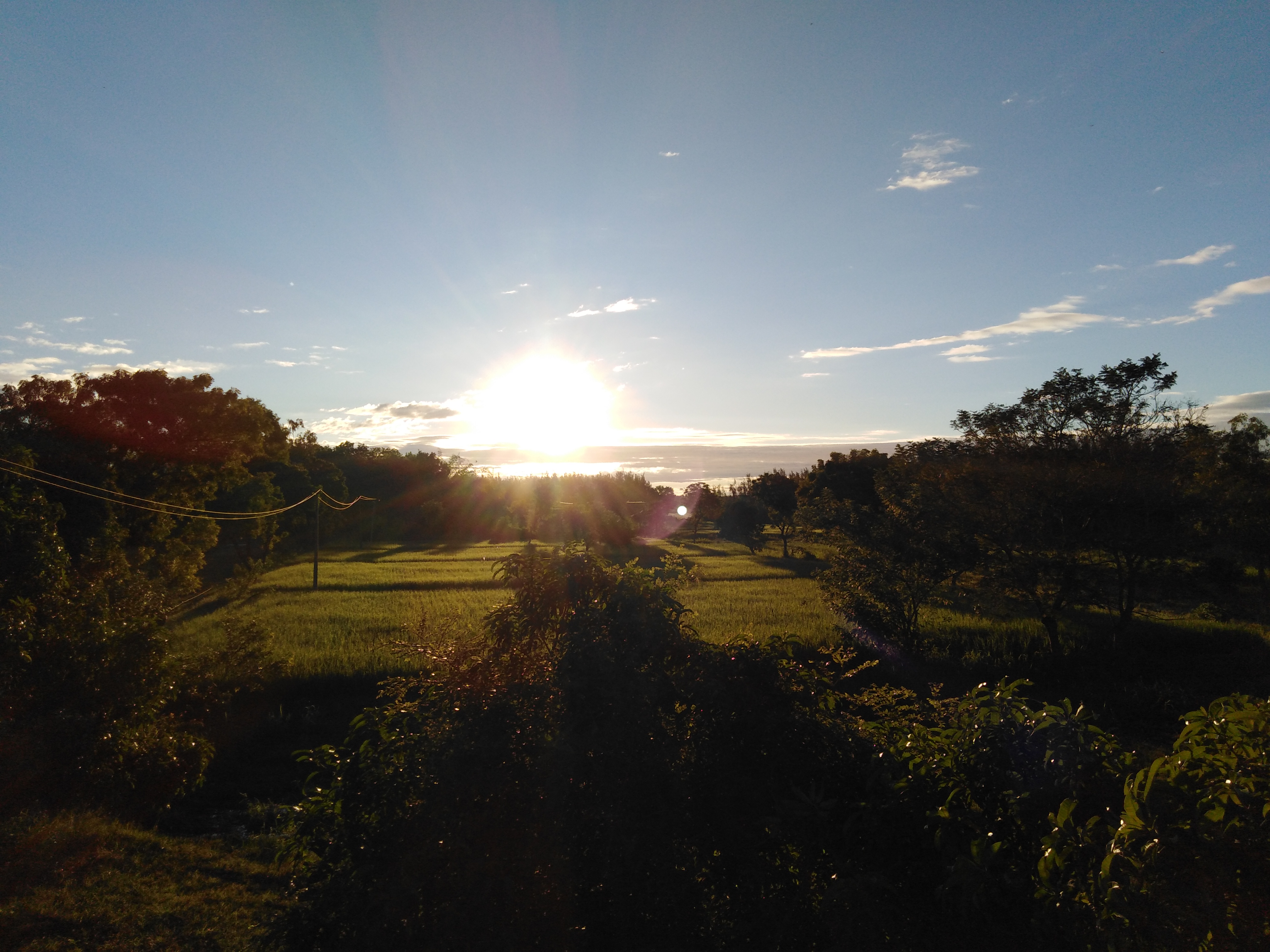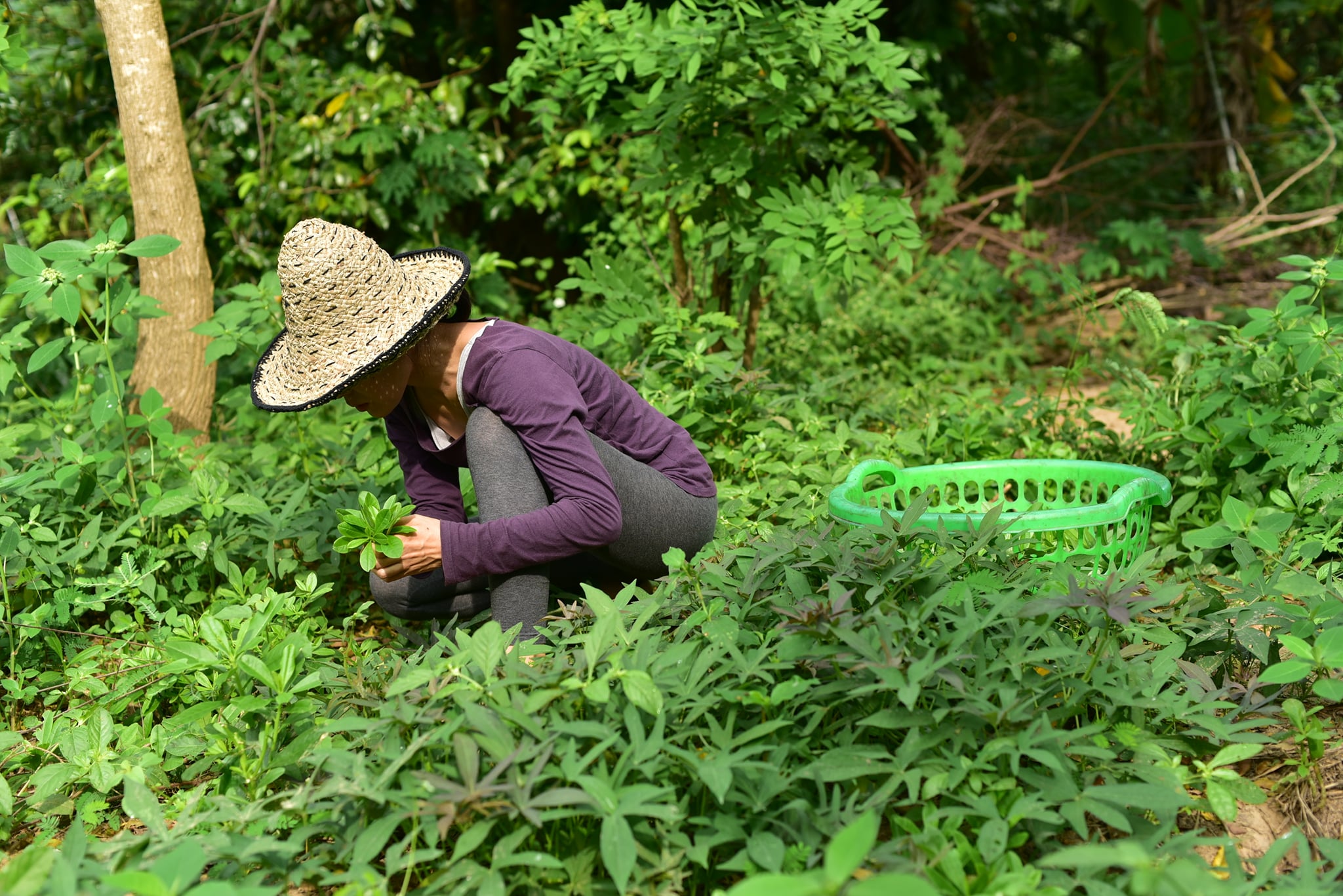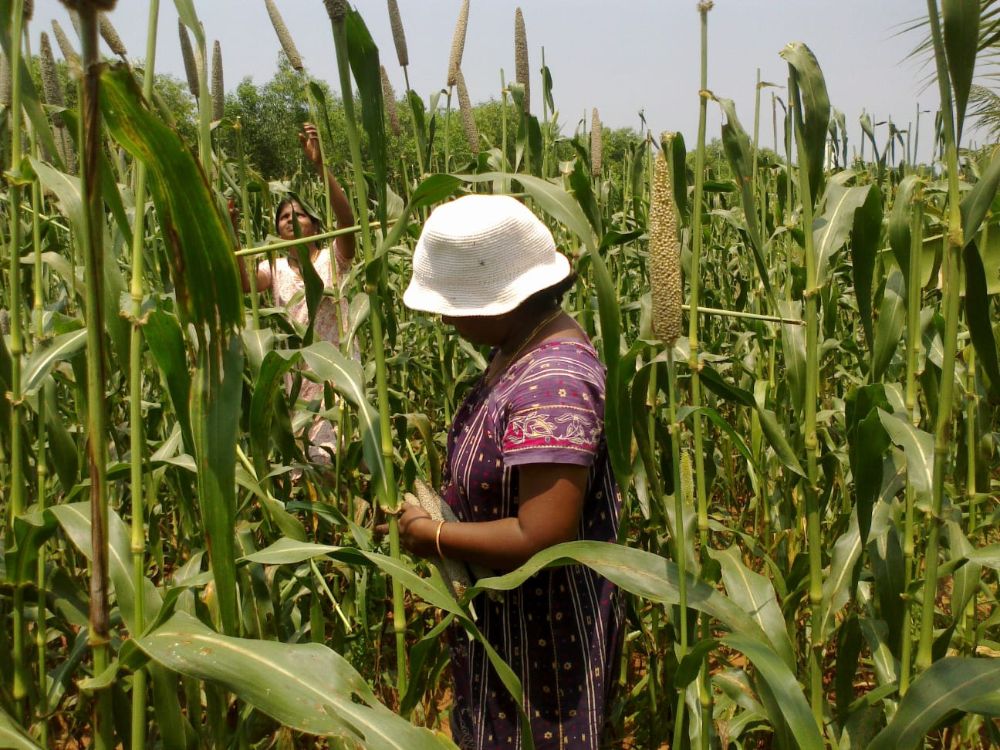Food and Community
Food is not something to be consumed ignorantly but to be imbibed with a high level of awareness and consciousness of where it comes from, how it is made etc. This can be established only if the consumer establishes a connection with nature and the food grown.
The community is made aware of the fact that it is healthier to eat organic homegrown food and that it is more cost-effective to purchase Auroville produce.
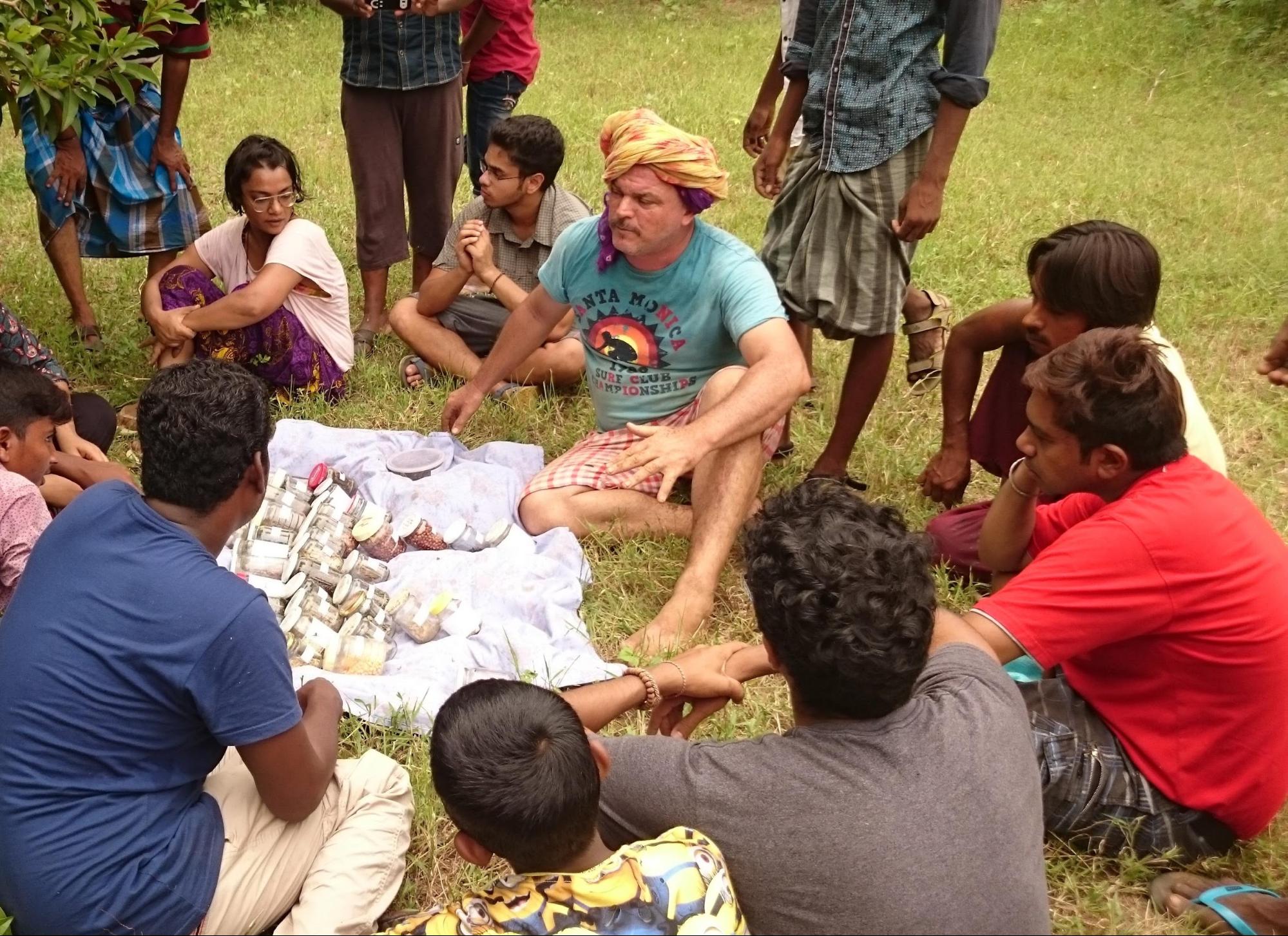
Aurovilians wake up to the sounds, smells and sights of nature and live nestled in the laps of Mother Earth. With an abundance of this connection with nature, Auroville has been declared by the Mother as a land that by itself has consciousness. Residents of Auroville also carry within themselves a piece of this consciousness coupled with their individual consciousness. As She envisioned, “All who live there will participate in its life and development …” It is thus imperative to develop a collective unity and consciousness in all aspects in the township, including food - its production, consumption and distribution.
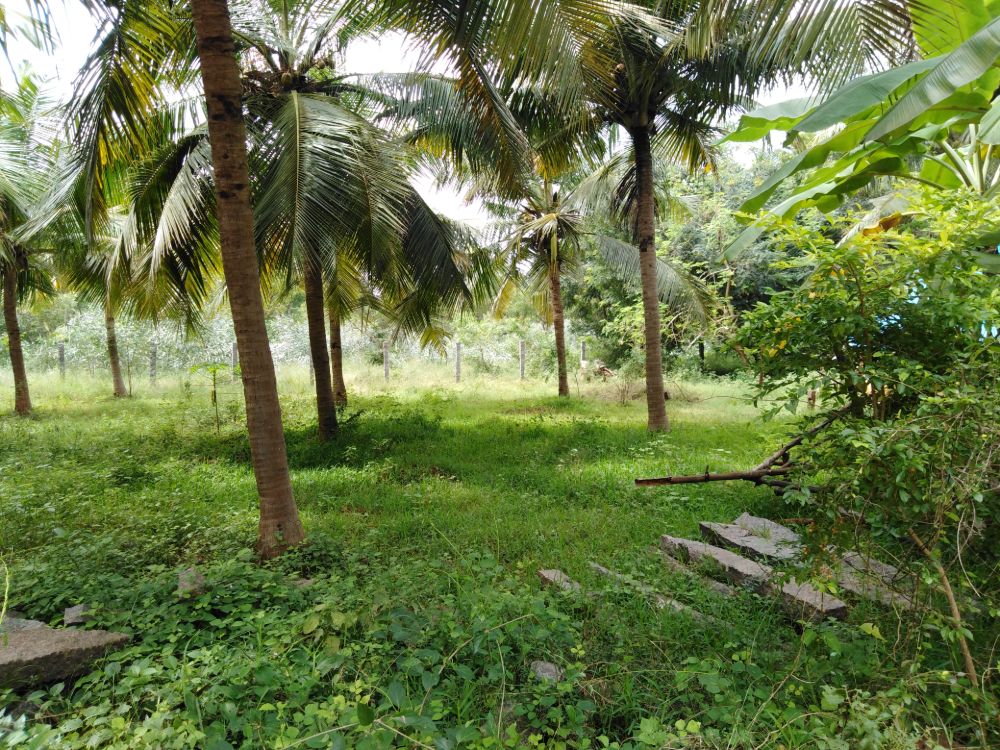
Over the course of time, the pattern of food consumption underwent a tremendous change with a more capitalist mindset further spurred the shifting of focus to profits and business opportunities by education and ‘thinking’. The gap between humans and nature thus increased and humans gradually lost the love and connection they had for nature leading to this catastrophic situation. In the words of Masanobu Fukuoka, the pioneer of permaculture farming, “ A society which doesn’t know where its food comes from is a society without culture, and humanity without culture will die, perish..”
Even concepts like Organic Farming or permaculture are viewed as potential business opportunities rather than a natural way of life. Breaking this paradigm requires everyone to wake up and become more aware of the existing disconnect between humanity and nature. Awareness is the first step to solving a problem and this is where the Auroville food sector aims to begin.
Culinary preferences develop over a period of time, are hard to break and one tends to get conditioned to a particular way of eating, including the type of food consumed, the preferred variety and look of vegetables etc. Such habituation remains engrained in one’s tastes and it is not surprising that we constantly seek a certain type of food with a certain rigidity. This rigidity permits us to even compromise on the quality of food than experiment with healthier local food choices. People tend to be more receptive to new food only when a connection with the food is established and this is what the aspiration is for.
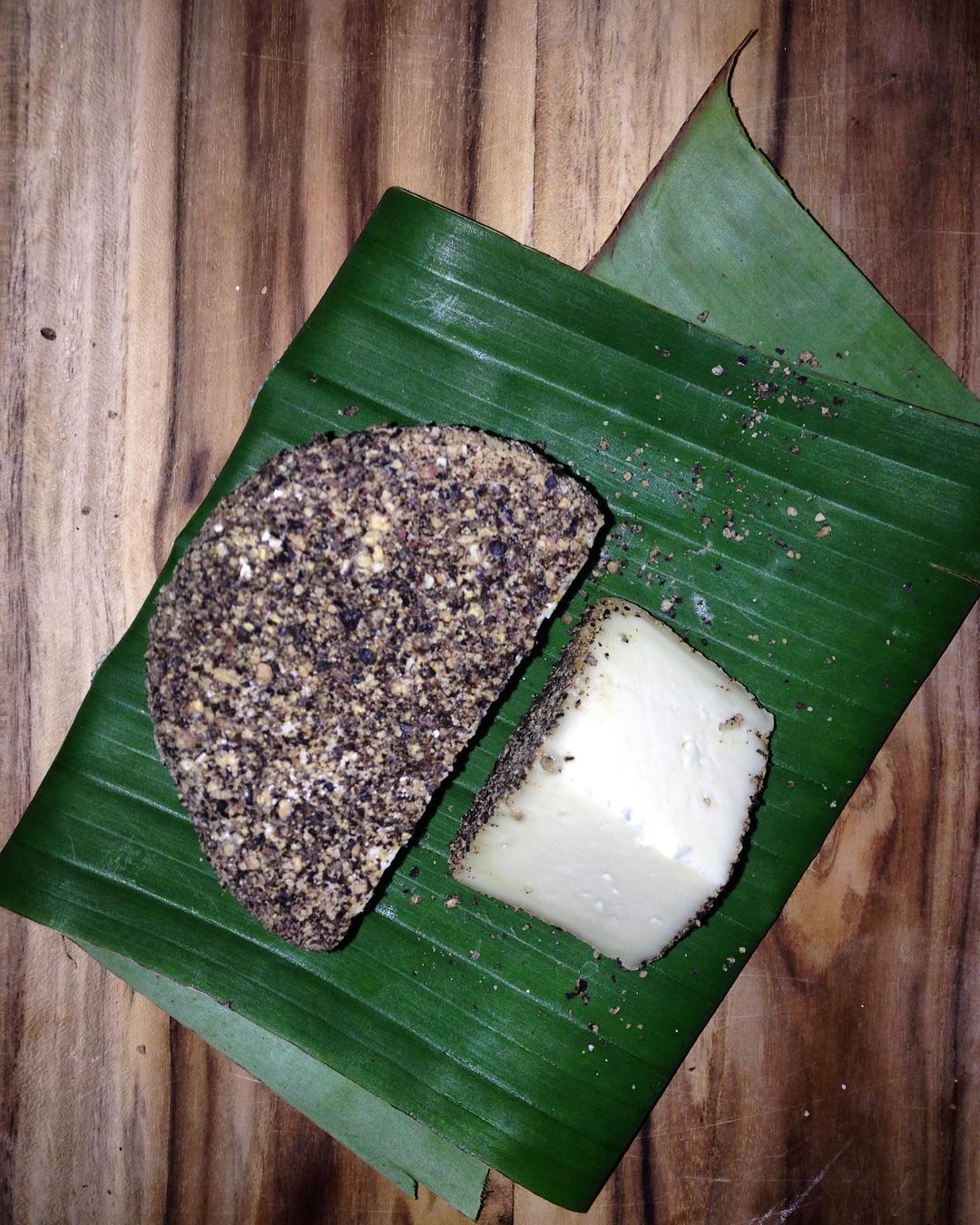
“Food has to be taken in the right spirit, with the right consciousness;..”
– Sri Aurobindo.
Food is not something to be consumed ignorantly but to be imbibed with a high level of awareness and consciousness of where it comes from, how it is made etc. This can be established only if the consumer establishes a connection with nature and the food grown.
“For harmony and better work, it is not by changing men that things can get better, but by changing one's own consciousness and character.”
– The Mother
This awareness and consciousness in food habits need to be made in oneself and in one’s surroundings before it can be made in a society. A consciousness of the perils of eating chemical-laced ‘good-looking’ food readily available in markets outside Auroville which somehow seems to be more attractive than the locally grown food, needs to be awakened. This becomes easier once the consumer is made aware of the fact that it is healthier to eat organic homegrown food and that it is more cost-effective to purchase Auroville produce.
Agriculture overall is stagnant and is on the decline due to the misconception that it is not profitable compared to the other avenues of business available. The food produced in Auroville meets only approximately 15% of the demand and 85% of food is sourced from outside Auroville in spite of acres of uncultivated land in the township. This in turn means that with the utilization of more arable land in Auroville, it is not a gargantuan task to make the community self-reliant.
Most of the farms in Auroville are managed by people with a passion for the organic modes of agriculture and operate with minimal labour. As a connection to nature and a recognition of the need for healthy eating is established, a joy in taking up farming can be rekindled in many hearts thus adding to the productivity of Auroville farms. This can be generated in multiple ways in the community.
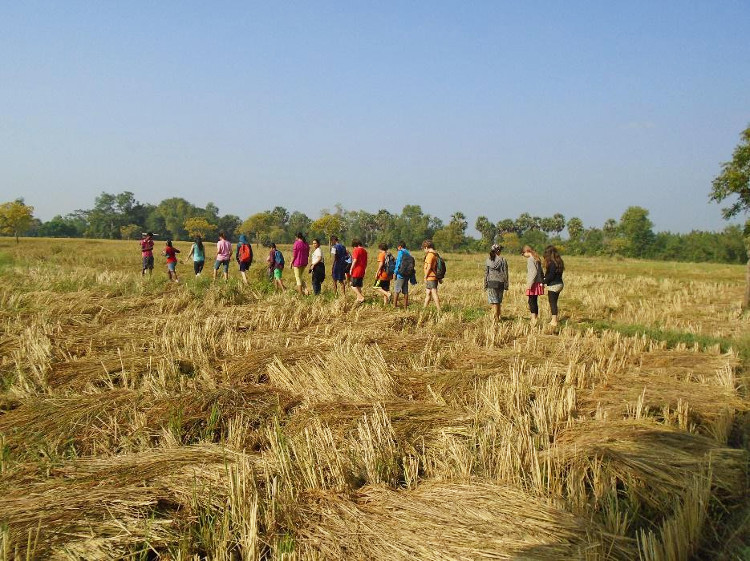
As Krishna says “Local food, its production, distribution and its consumption has to be the foundation of any society.” A people’s movement has been initiated where groups of people come together to try to make changes in this aspect, where they take full responsibility for the local food production, distribution, and consumption. Each group, according to their interests, focus on different aspects of food in Auroville. For example, some focus on Education and Training, while others focus on Marketing of Auroville produce and generating awareness in the community, some others focus on developing means to implement these changes in the society involving the entire community and so on.
A typical example of this is the Town Hall Project wherein small modules of ‘mini’ gardens complete with flowering, fruiting and other flora were established. A complete edible landscape with benches and meeting tables was designed to facilitate better interaction among the users. Each of these modules is handled by Aurovilians, newcomers and guests. These volunteers are given training through workshops etc and thus gather the requisite skill and knowledge of how to manage these gardens. A chain reaction then followed when these volunteers replicated such modules in their own communities and thus implemented this ecosystem. Collective participation involving the entire community remains the defining factor in such an initiative to re-establishing a connection with nature and locally grown organic food.
Such mini-modules of gardens were also established in schools involving the children and teachers. Utilization of the self-grown produce for their meals and snacks would not only be healthy but also be pivotal in establishing a link with nature in the tender minds of the young farmers. Such a practical exposure of the community to farming and healthy eating habits speaks volumes instead of just imparting theoretical knowledge by lectures etc.
Collective management involving community investment for developing the necessary infrastructure for storage and maintenance of the food sector is also in the initial stages indicating strong participation of the community
Educating the community not only about the advantages of consuming organically grown local food but also encouraging them to change their eating habits imbibed over the years is another initiative that is being taken. Other than simply providing food, there are pamphlets, and posters with recipes on how to use a local vegetable thus encouraging the residents to try and incorporate it into their diet. Such an approach seems to work better than just supplying the vegetables. Due to the diverse cultural backgrounds of the residents, many are unaware of the existence and health benefits of local produce and prefer to stick to the food they are used to. In this direction, an awareness would be of immense benefit in translating this aspiration into a reality. Residents should be aware of why they could choose local food over readily available processed food, about why they should try and incorporate locally grown banana flowers, snake gourds, Indian beans etc in their diet. Along with the ‘why’, answers to the ‘how’ to incorporate these vegetables in their diet are also provided in the form of cooking workshops etc. in Auroville.
Schools are an excellent place to start this initiative since they provide an opportunity for children to be aware of healthy eating. If the children get to eat popcorn, banana chips, sprouts and fruit salads grown by themselves or from the Auroville farms then there is a better chance for them to familiarize themselves with the taste and also get habituated to the same. It would be easier to make them eat ragi, red rice, varagu and other millets when they can connect with the food and to the bigger mission of healthy eating. Each school is not just an individual entity tending to a single garden but functions as a group where each team goes around helping and inspiring others thus moving from an individual to a collective community mindset.
Cafes and restaurants also present themselves as a transformative platform when they treat their units not just as food providers, but consider themselves to be part of a social responsibility. Pamphlets, posters displayed on their premises advertising the advantages of a particular dish made with locally grown food that they serve, may inspire more customers to try the same in their cooking. Local food advocates in Auroville, try to get the cafes and restaurants to commit to using a particular produce, say red rice, as part of their offerings, which they readily adopt after being made aware of the immense health advantages it comes with.
Only when one is educated on this would one want to execute it and community places like schools, halls, cafes and restaurants are perfect places for initiating this movement. The small groups committed to this mission take it upon themselves to provide the initial training at these starting points to help cascade this movement to the entire society. For example, Smoothie workshops on how to easily whip up highly nutritious low-cost drinks using organically homegrown produce like Basil, Spinach, papaya, and lemon not only inspire the participants to make it at home but also try to cultivate these plants in their homes. Better personal health translates to a healthier society in the long run.
Progress in this direction is well indicated in the increasing attendance for the meetings conducted by these groups, thus serving as a milestone in the transformation of the thinking of the community towards this goal.
The Farming and Food Link distribution centre plays a major role in this initiative. Food Link serves as the marketing wing of the farm group. Foodlink’s collaboration with the ‘local food’ initiatives is on its way to achieving the mission of making Auroville self-sustainable. With an expanded processing capacity and workspace being planned at Food Link, it can serve as a trading hub for the farm produce in the community. Surplus produce can even be arranged to be distributed outside Pondicherry making it more profitable for the Aurovilian farmers. Finding a market for the produce both inside and outside the Auroville community enables farmers in the bioregion to be interdependent and complement the entire supply chain of the Auroville farming sector.
Community Supported Agricultural system could help transform the entire thinking of the community and make them more involved in food production, consumption, and distribution. Consumers would then opt for locally produced food that is available, instead of insisting on a particular type of food sourced from outside. A transition of the mindset of the community is dependent on an awareness of the benefits of organic produce. Some of these tangible benefits include those from a health perspective, it is ecologically more sustainable, superior quality over regular market produce, value for money etc.
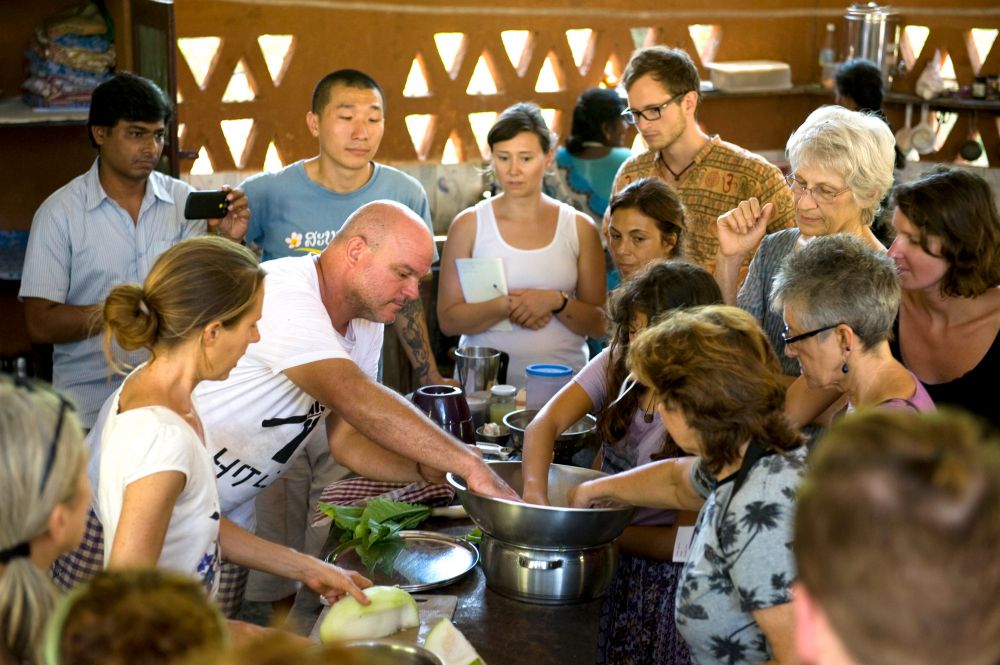
Slowly but surely, Auroville is progressing toward the vision that The Mother had for Auroville, “those who produce food will give the township what it needs (in proportion to what they produce, naturally), and it is the township's responsibility to feed everyone.
And that's what will give it the capacity to prolong its life, to last longer: it's by replacing the mental, intellectual government by the government of the Spirit, of the Consciousness—THE Consciousness. Outwardly, it doesn't seem to make much difference, but...
All you have to do is always, always be supple, attentive, and... responsive to the influence of the Consciousness—the Consciousness in its all-powerfulness—so as to go through all this with extraordinary suppleness.”
See Also
